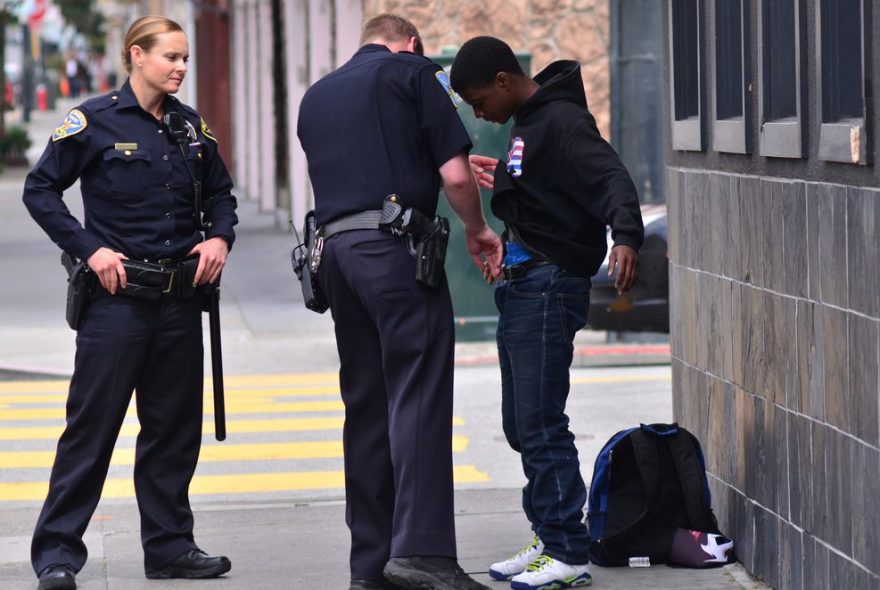
Terry Stops
A Terry Stop is the typical name for a police stop on foot, it gets its name from the supreme court case of “Terry vs Ohio 32 U.S. 1,” you will also find statutes within your State that follow the same rules. This case establishes the fact that an officer does not have to have probable cause as secured by the 4th amendment to stop a citizen, but only “Reasonable Suspicion” that a person has committed, is committing, or is about to commit a crime. However, the Supreme Court has also stated that an officer has to have “Specific and Articulable Facts” of what a person was doing that leads them to believe the person has done, is doing, or is about to commit a crime.
This means that if an officer cannot verbally state a crime they suspect you of committing, about to commit or have committed, OR, or a specific physical act that you were doing that leads them to the same conclusion, then you don’t have to give the police your name, ID or even talk to them. Simply and Politely ask them if you are being detained or if you’re free to go. If the officer still tells you that you are being detained without establishing any evidence of wrongdoing, then it is an unlawful detainment and the officer loses their “Qualified Immunity” leaving them open to a personal lawsuit and bond claim/lien.
With that being said, you still should be armed with as much law as possible at a police encounter in order to secure your rights, or get restitution in case your rights are violated. As stated, an officer needs Probable Cause to arrest, or to search and/or seize (that includes handcuff) a person during a police stop, but only reasonable articulable suspicion to detain and investigate.

Terry Stops
A Terry Stop is the typical name for a police stop on foot, it gets its name from the supreme court case of “Terry vs Ohio 32 U.S. 1,” you will also find statutes within your State that follow the same rules. This case establishes the fact that an officer does not have to have probable cause as secured by the 4th amendment to stop a citizen, but only “Reasonable Suspicion” that a person has committed, is committing, or is about to commit a crime. However, the Supreme Court has also stated that an officer has to have “Specific and Articulable Facts” of what a person was doing that leads them to believe the person has done, is doing, or is about to commit a crime.
This means that if an officer cannot verbally state a crime they suspect you of committing, about to commit or have committed, OR, or a specific physical act that you were doing that leads them to the same conclusion, then you don’t have to give the police your name, ID or even talk to them. Simply and Politely ask them if you are being detained or if you’re free to go. If the officer still tells you that you are being detained without establishing any evidence of wrongdoing, then it is an unlawful detainment and the officer loses their “Qualified Immunity” leaving them open to a personal lawsuit and bond claim/lien.
With that being said, you still should be armed with as much law as possible at a police encounter in order to secure your rights, or get restitution in case your rights are violated. As stated, an officer needs Probable Cause to arrest, or to search and/or seize (that includes handcuff) a person during a police stop, but only reasonable articulable suspicion to detain and investigate.
